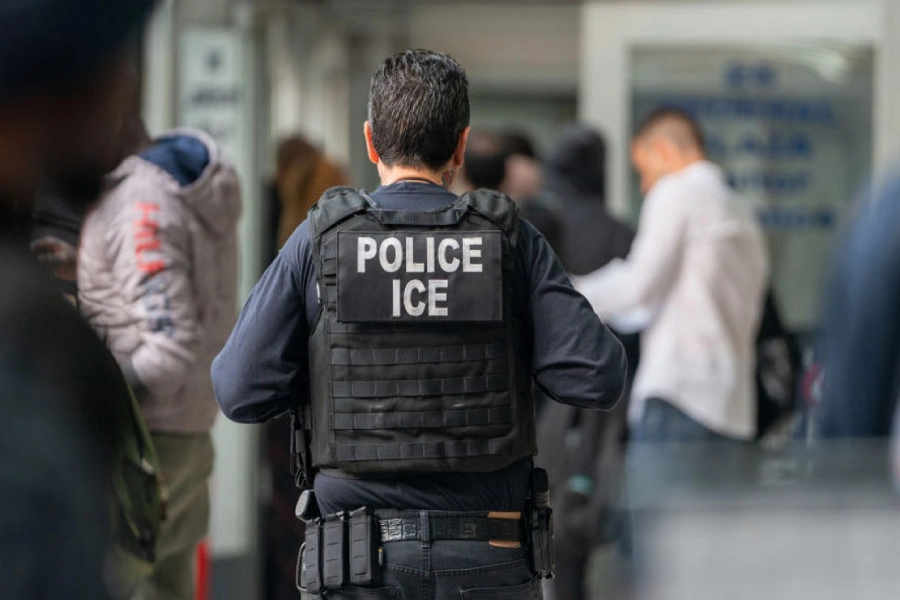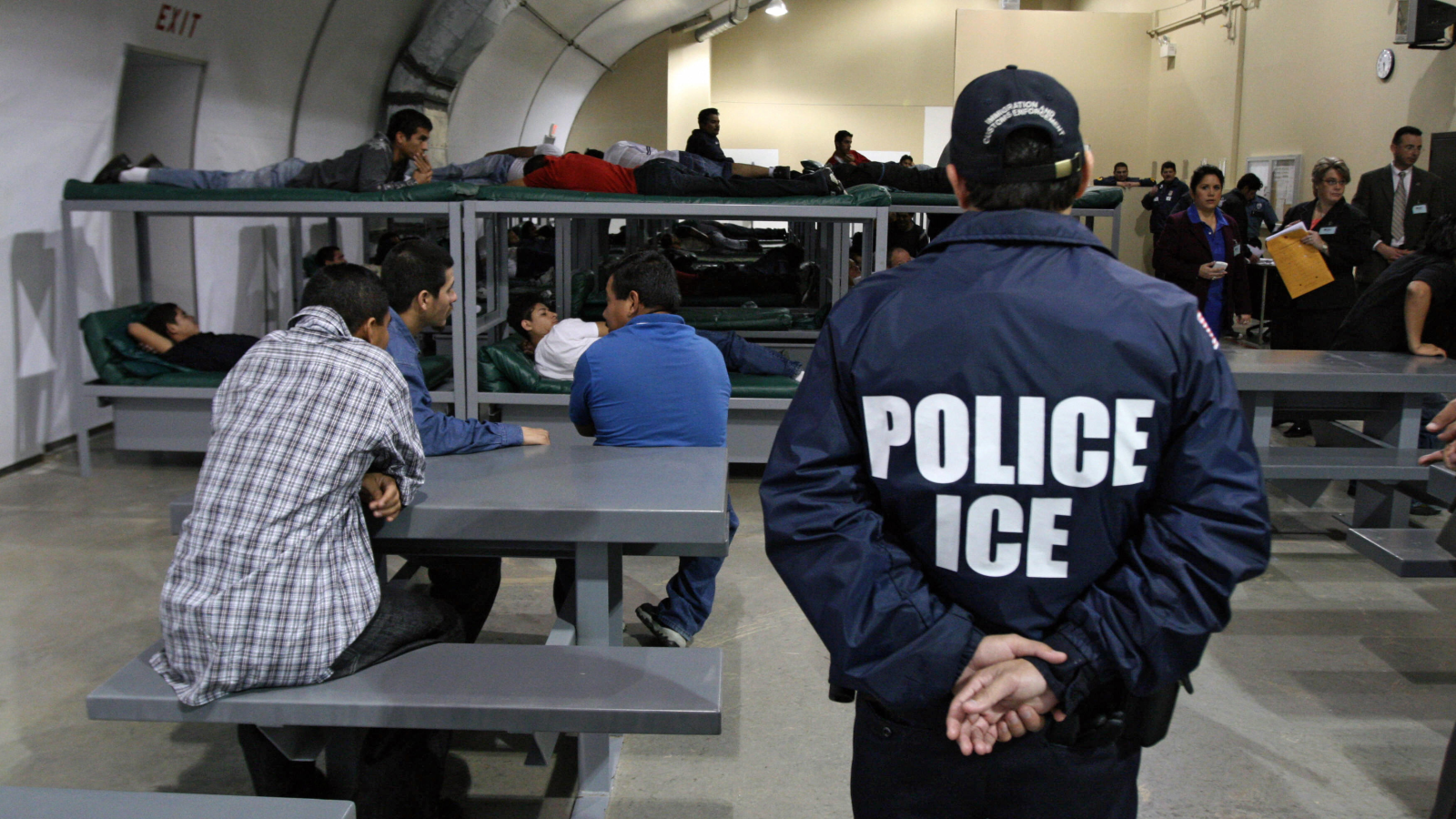The term Luis Leon ICE refers to the troubling deportation of Luis Leon, an 82-year-old Chilean-born lawful permanent resident, who was secretly removed from the United States and sent to Guatemala without proper notification or due process. This case has raised alarms among legal experts, immigrant rights advocates, and the public, due to the irregular and opaque manner in which ICE carried out his removal.
Luis Leon was detained unexpectedly during a routine appointment to renew his green card. Instead of standard administrative processing, he was detained, transported, and deported to a country with which he had no legal or familial ties. The lack of transparency, absence of formal hearings, and questionable choice of destination have fueled widespread legal and human rights concerns.

ICE Authority and the Legal Framework Surrounding Luis Leon ICE
ICE operates under federal immigration statutes authorizing detention and removal of individuals violating immigration laws. However, this authority is bounded by strict procedural safeguards designed to protect constitutional rights and uphold fairness. The Luis Leon ICE incident starkly exposes the tension between ICE enforcement powers and due process requirements.
Key legal principles at play include:
-
Due Process Under the Fifth Amendment: Individuals facing deportation are entitled to notice and a meaningful opportunity to contest removal in immigration court.
-
Statutory Compliance: ICE must follow established immigration laws, including country-specific removal agreements.
-
Humanitarian Protections: Special care must be taken with vulnerable populations, such as elderly or medically fragile detainees, ensuring deportations do not cause undue harm.
In Luis Leon’s case, questions have emerged regarding whether these safeguards were respected.
Due Process Concerns in the Luis Leon ICE Deportation
Due process violations are central to the legal scrutiny of the Luis Leon ICE case. Constitutional protections demand transparency and fairness in removal proceedings, yet multiple aspects of this deportation suggest serious breaches:
-
Lack of Notice to Family and Legal Representatives: Luis Leon’s family was left uninformed of his detention and whereabouts for weeks, a clear breach of procedural norms.
-
Absence of Immigration Court Hearing: There is no public record indicating that Leon had an opportunity to present his case before an immigration judge.
-
Irregular Deportation Destination: Deporting Leon to Guatemala—a country with no deportation agreement with the U.S. for Chilean nationals—raises questions about the legality and accountability of ICE’s actions.
Legal experts argue these points amount to violations of Leon’s Fifth Amendment rights and statutory protections under immigration law.
International Legal Implications of the Luis Leon ICE Deportation
Beyond domestic law, international legal frameworks govern deportations and protect individuals from arbitrary removal. The U.S. is party to multiple human rights treaties imposing obligations on the government, including:
-
International Covenant on Civil and Political Rights (ICCPR): Prohibits arbitrary or unlawful deportation and guarantees due process.
-
Human Rights and Medical Ethics: Deporting an elderly man with serious health conditions without adequate medical care contravenes international humanitarian norms.
-
Family Rights: International law emphasizes maintaining family unity, which was disrupted by the secretive nature of Leon’s removal.
The Luis Leon ICE case arguably breaches these international standards, intensifying calls for accountability.

Systemic Issues and ICE Accountability Highlighted by Luis Leon ICE
This case exposes broader systemic challenges within ICE operations:
-
Opaque Enforcement Practices: ICE’s failure to publicly disclose the reasons or process behind Leon’s deportation undermines trust and legal oversight.
-
Lack of Oversight: The incident reflects weaknesses in internal and external checks on immigration enforcement agencies.
-
Calls for Reform: Advocates demand greater transparency, improved procedural safeguards, and enhanced protections for vulnerable detainees.
The legal community is urging Congress and federal agencies to address these systemic flaws to prevent recurrence of similar cases.
Legal Remedies and Future Outlook Following Luis Leon ICE
In response to the case, several legal pathways are available:
-
Habeas Corpus Petitions: Challenging unlawful detention and deportation.
-
Injunctions: Preventing unlawful deportations when due process is denied.
-
Civil Rights Litigation: Holding ICE accountable for constitutional violations.
-
International Complaints: Pursuing remedies under human rights treaties.
The Luis Leon ICE case is likely to become a landmark in immigration law, prompting legislative and policy reforms aimed at balancing enforcement with fundamental rights.
Conclusion
The Luis Leon ICE deportation case serves as a crucial example of the risks posed by unchecked immigration enforcement. It underscores the urgent need to reinforce due process, ensure transparency, and protect vulnerable individuals from arbitrary removal. As legal and human rights debates continue, this case could catalyze much-needed reform in U.S. immigration policy and enforcement.
FAQ
Q1: Who is Luis Leon and why is his deportation controversial?
Luis Leon is an 82-year-old lawful permanent resident from Chile, secretly deported by ICE to Guatemala without due process, raising serious legal and ethical concerns.
Q2: Did ICE violate laws in deporting Luis Leon?
Evidence suggests ICE bypassed required procedural safeguards, including notice, hearings, and deportation agreements, potentially violating constitutional and immigration laws.
Q3: What rights protect immigrants like Luis Leon?
The Fifth Amendment guarantees due process, and international treaties prohibit arbitrary deportation and protect human rights, including for vulnerable detainees.
Q4: Can legal action reverse or challenge deportations like Luis Leon’s?
Yes, through habeas corpus, injunctions, civil rights lawsuits, and international human rights complaints.
Q5: What reforms could prevent cases like Luis Leon ICE in the future?
Improved transparency, stronger oversight, better procedural safeguards, and policies ensuring humanitarian considerations in deportations.

